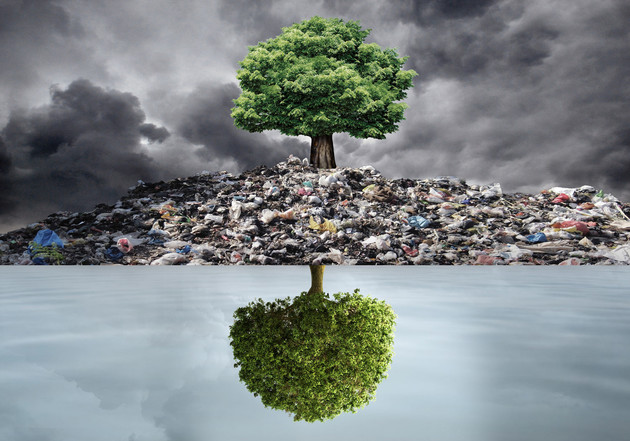
Photo/Shetuwang
Jan. 11 (NBD) -- When China's ban on waste imports took effect last January, big garbage exporters such as the U.S., the U.K. and Japan were puzzling over what to do but soon found a way out by exporting the waste to Southeast Asian countries including the Philippines, Thailand, Vietnam and Malaysia.
During the January-July period in 2018, Malaysia imported 754,000 tonnes of plastic trash, an equivalent to the weight of 100,000 elephants, from countries including the U.S., Japan, Australia, the U.K. and New Zealand, according to data compiled by non-governmental environmental organization Greenpeace.
The organization's Malaysian branch also found that the country's plastic recycling industry is overwhelmed by the influx and cannot accommodate the waste in a way that is sustainable and acceptable by the government's own standards.
Thailand and Vietnam are no exceptions.
Statistics from Greenpeace showed that the U.S. plastic waste exports to Thailand rocketed by nearly 2,000 percent year on year to 91,000 tonnes in the first six months of 2018 and the amount to Vietnam surged by 46 percent year over year to 71,000 tonnes during the same period of time.
The huge influx of rubbish has posed a major impact on these countries, although part of scrap plastic can provide secondary materials for the manufacturing sector. One of the reasons lies in that the solid waste management and recycling capability of these Southwest Asian countries lag far behind the international standards.
Taking Malaysia for example, Heng Kiah Chun, Public Engagement Campaigner at Greenpeace Malaysia, pointed out, "the plastic is burned on roadsides in the open-air, dumped in unregulated or poorly regulated dump sites close to bodies of water, discarded in abandoned buildings or just left to degrade and rot in the open."
Seeram Ramakrishna, director of Centre for Nanofibers and Nanotechnology at National University of Singapore, said to the 21st Century Business Herald that recipients of "foreign trash" in Southeast Asia should seriously weigh the problems such as the lacking technologies, skills, investment and government support in the waste recycling and then find a way out.

Photo/Shetuwang
The surge in waste imports, illegal dumping as well as poor waste management and recycling have prompted these Southeast Asian countries to follow China to impose restrictions.
In a bid to stem the flow of imported rubbish coming into Southeast Asia following China's waste ban, Vietnam temporarily stopped accepting scrap plastic imports last May, and Thailand last October announced a plan to halt all imports of plastic waste by 2021. Also in October last year, the Malaysian government stated that the nation was taking steps to limit imports of plastic waste.
Interviewed by the 21st Century Business Herald, Monique Retamal, research principal at the Institute for Sustainable Futures of University of Technology Sydney, commented that currently restrictions on "foreign garbage" of Southeast Asian countries either are temporary or haven't been implemented. "Unless the countries can set corresponding standards, they might restart the imports in the future."
Retamal also recognized the difficulty for Southeast Asian authorities to supervise the quality of imported waste and to regulate the work environment of small individual recycling workshops. "The authorities may find it easier to ban all waste imports eventually."
If all nations impose a ban on waste imports in the future, they will have to process the garbage on their own and develop the market of reusable materials, Retamal added.
Ramakrishna regarded circular economy as a way to create new jobs and companies, benefit people's health and foster better environment, and deemed circular-economy thinking as the new driver for economic growth in the next few years or even decades.
Email: gaohan@nbd.com.cn


 川公网安备 51019002001991号
川公网安备 51019002001991号





